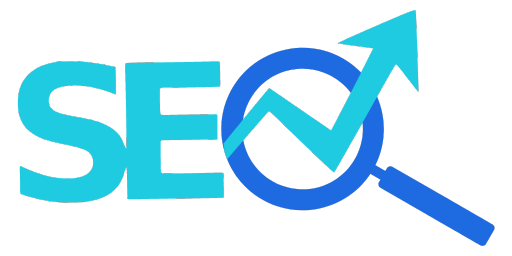The Beginners Guide to Choosing the Right CMS

All text and images were created with the help of A.I. ZimmWriter was used for the creation of the content (tutorial here), LinkWhisper for bulk interlinking (tutorial here), Bluehost for hosting (tutorial here), and Crocoblock for WordPress setup (tutorial here), and RankMath Pro was used to optimize it for SEO (tutorial here). Please understand I will receive an affiliate commission if you make a purchase from any of the above links, thank you for your support!
This website was built using GPT-4, for a website built using GPT-3.5 check out this link!
So, you’ve decided to take the plunge and create a new website or revamp an existing one. It’s an exciting time, but there’s one crucial decision you’ll need to make before diving into the design and content – selecting the right Content Management System (CMS).
As a web professional who’s worked with countless CMS platforms over the years, I’m here to tell you that choosing the right one can be a game-changer for your online presence.
In today’s digital landscape, there are countless CMS options available – from popular choices like WordPress and Drupal to lesser-known yet powerful contenders such as Craft CMS and Ghost. But don’t let this abundance overwhelm you!
In this beginner’s guide, we’ll walk you through the key criteria in selecting a CMS that suits your needs and helps your website thrive. Trust me, once you’ve made the right choice, managing your site will become a breeze.
Assessing Your Website’s Needs And Goals
When embarking on the process of selecting the ideal content management system (CMS) for your website, it is crucial to begin by assessing your website’s needs and goals.
To do this effectively, you must consider both the immediate requirements of your site as well as any potential future growth and expansion. Some common factors to consider include website migrations, content organization, ease of use, scalability, and security.
Website migrations can be a daunting task when switching to a new CMS. Therefore, ensure that the CMS you choose supports seamless migration from your existing platform while preserving the integrity of your content and design elements.
Content organization is another essential factor to consider; an intuitive CMS should allow you to efficiently manage your content hierarchy and taxonomies with ease. Additionally, think about how user-friendly the CMS is for both technical and non-technical staff members who will be responsible for maintaining and updating the site.
As you evaluate different CMS options in light of these factors, it is important to remember that there is no one-size-fits-all solution. Your choice should be tailored specifically to meet the unique needs and goals of your website.
By carefully considering each aspect mentioned above and conducting thorough research on various platforms available in the market, you will be well-equipped to make an informed decision that best suits your website’s long-term success.
Comparing Popular Cms Platforms
In this section, we will delve into a comparison of some popular CMS platforms to help you make an informed decision. Choosing the right CMS for your needs is crucial as it will impact your website’s functionality, content organization, and overall user experience. As an expert in this field, I have analyzed various CMS features and narrowed down the top contenders that provide the most value to users.
The first CMS platform worth considering is WordPress. WordPress is undoubtedly one of the most popular choices due to its extensive range of customizable features, ease of use, and large community support. Its vast plugin library allows you to enhance your website with additional functionalities such as SEO tools, analytics integration, and social media sharing options. Content organization in WordPress is straightforward with categories and tags that enable easy navigation for both website administrators and visitors.
Another notable CMS option is Drupal. Known for its open-source architecture and robust security measures, Drupal offers flexibility in creating complex websites with custom content types and taxonomies. This platform also supports multilingual capabilities out-of-the-box – a valuable feature for businesses catering to international audiences. However, it’s essential to note that Drupal has a steeper learning curve compared to other platforms such as WordPress or Joomla.
Nonetheless, if you’re looking for a powerful and secure platform that can handle intricate content organization requirements, Drupal might be the ideal choice for you.
Selecting the right CMS ultimately depends on your specific needs and goals for your website or online business. It’s important to evaluate each platform based on their respective advantages and limitations while keeping in mind factors such as ease of use, scalability potential, available plugins or add-ons, community support resources, and compatibility with future technology trends.
By taking these aspects into consideration during your decision-making process, you can ensure that you choose a suitable platform capable of driving your online success.
Evaluating Ease Of Use And Customization
Delving deeper into the process of selecting the ideal content management system, it is crucial to assess the ease of use and customization options that various platforms offer. A well-designed CMS will strike a balance between user experience and theme flexibility, ensuring that both novice users and experienced developers can achieve their desired outcomes with minimal frustration.
When evaluating a CMS on these parameters, consider factors such as intuitive interfaces, readily available support and resources, and the extent to which you can tailor the platform’s functionality and appearance to meet your website’s unique requirements.
The significance of user experience cannot be understated when choosing a CMS. An intuitive interface makes it easy for non-technical team members to manage content efficiently without requiring extensive training or assistance from developers. Look for platforms that offer visual editing tools, drag-and-drop functionalities, and clear navigation menus to streamline content creation processes.
Furthermore, evaluate how quickly you can find answers to common questions by seeking out community forums, knowledge bases, or customer support teams associated with each CMS.
Theme flexibility is another paramount aspect in this evaluation process. A flexible theme enables you to customize your website’s layout and design elements according to your brand identity while maintaining responsiveness across devices. This includes pre-built templates that cater to different industries or purposes as well as the ability to create bespoke designs from scratch using custom CSS or HTML code.
Additionally, consider whether a CMS offers an extensive library of plugins or extensions that allow for further enhancement of site capabilities without having to rely solely on custom development work.
Taking these factors into account while assessing potential content management systems will lead you towards a solution that not only caters effectively to your website’s unique needs but also empowers all team members in managing its digital presence with confidence and proficiency.
Considering Security And Support Options
One of the most important aspects when choosing a CMS is ensuring that it offers robust security measures to protect your website from potential threats. Securing CMS should be a top priority, as cyber attacks are becoming more prevalent and sophisticated over time. When evaluating different content management systems, look for features such as built-in firewalls, two-factor authentication, regular security updates, and encryption methods.
In addition to these essential security features, it’s also crucial to research how frequently the CMS provider releases patches to address vulnerabilities.
Another vital factor in selecting the right CMS is considering the level of support offered by the platform. A strong support system can make all the difference in successfully managing and maintaining your website. Some CMS providers offer dedicated customer service teams that are available 24/7 to help troubleshoot any issues you may encounter. Additionally, many platforms have extensive documentation that can guide you through common challenges or technical problems.
Aside from official support channels provided by CMS vendors, it’s also beneficial to explore various user-generated resources such as forums, blog posts, and social media groups centered around specific content management systems. These support communities often prove invaluable in sharing practical tips, best practices, and solutions to common issues faced by users of a particular platform.
Engaging with these communities not only helps you resolve problems but also enables you to stay updated on the latest trends and developments within the world of content management systems. Remember that a well-rounded decision on which CMS to choose should encompass both its security features and available support options for optimal results in managing your online presence effectively.
Analyzing Pricing And Scalability
After narrowing down the potential CMS options based on features and ease of use, it is crucial to consider the financial aspect of the decision. Analyzing pricing and scalability will help you ensure that your chosen CMS is not only affordable for your current needs but also able to grow with your business in the future.
To do this, you must examine both the upfront costs and any ongoing expenses associated with each platform, as well as any potential scalability limitations.
CMS affordability is an essential factor when deciding on a suitable platform for your website or online project. Some content management systems offer free versions with limited functionality, while others require a one-time payment or subscription fee. In addition to these base costs, be sure to account for any premium add-ons, plugins or themes that may improve functionality but come at an added expense. It’s also important to consider hosting fees and potential maintenance costs when evaluating overall affordability. Remember that the most cost-effective solution might not always be the cheapest option – investing in a reliable and feature-rich CMS can save time and money in the long run.
Scalability limitations can quickly become an issue if your chosen CMS struggles to accommodate growing traffic or expanding content requirements. As you evaluate different platforms, take note of their ability to handle increased user engagement and content volume without sacrificing performance or user experience. This includes considering whether additional features can be easily integrated into the existing system without significant disruption or cost increases.
Moreover, check whether there are built-in tools for optimizing site performance as it grows over time, such as caching mechanisms or Content Delivery Networks (CDNs) integration options. By thoroughly examining pricing structures and potential scalability limitations, you’ll ensure that your investment in a CMS will continue paying off even as your business evolves and expands its online presence.
Conclusion
In conclusion, selecting the right CMS for your website is crucial to achieving your online goals.
Be sure to assess your needs, compare popular platforms, evaluate user-friendliness and customization options, consider security and support, and analyze pricing and scalability.
Remember, as an expert in this field, I can assure you that taking the time to research and choose the best CMS will pay off in the long run.
Your website’s success depends on it.
